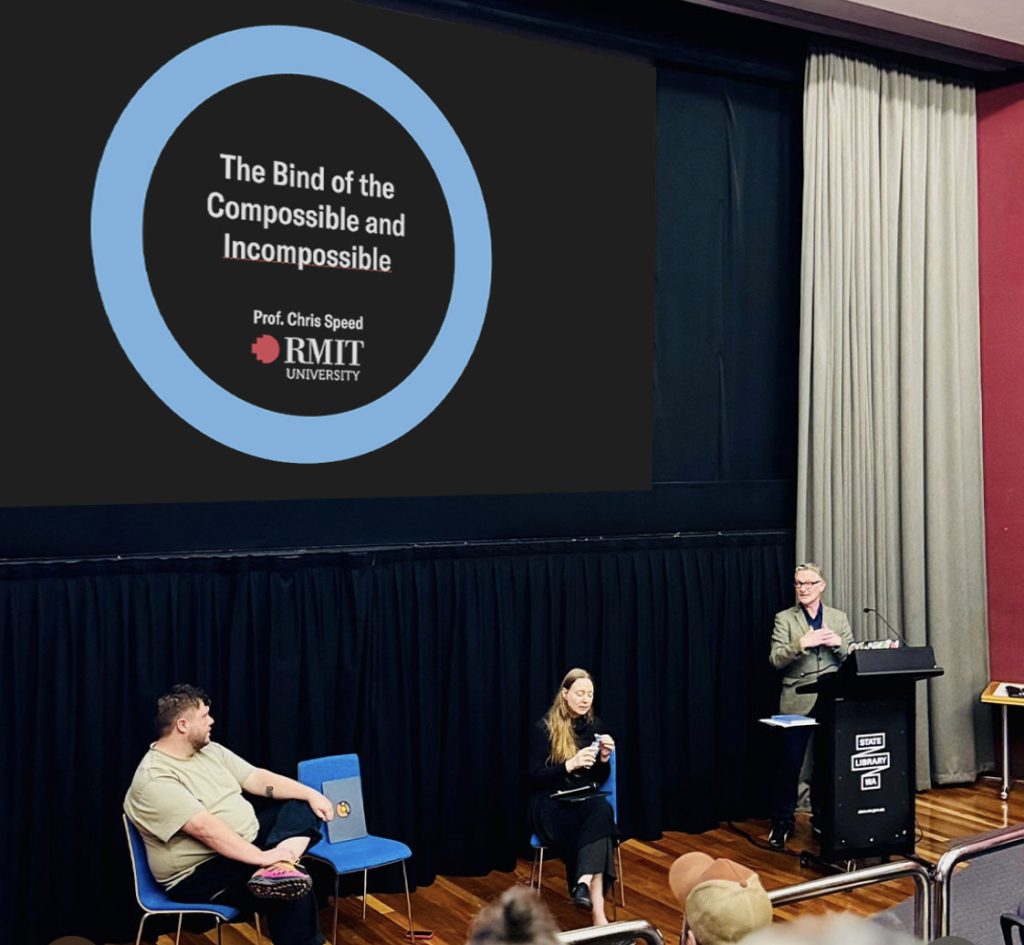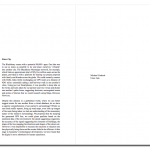Ending the year between collapse and care: three December gatherings on time, action, and giving back. Three events revealed not just different approaches to transformation, but different temporal logics entirely.
Indy Johar at RMIT University Capitol Theatre spoke about redesigning civic infrastructure through care and community enterprise. Dark Matter Labs operates on institutional timescales – systemic transformation through social innovation reimagining collective resources and governance.


A walk with Dr Dominique Hes through the Newport Lakes revealed transformation over a 30 year period. Located in the residential area of Newport is the most extraordinary regenerated quarry. Once Koort Boork Boork to the Yallukit-willam people, this land became bluestone quarry, then battleground for hyper local fighting over whether it becomes landfill or sanctuary. Refusing romantic narratives, Hes suggests that “it will never return to the Koort Boork Boork of 200 years ago, but is evolving into something just as beloved.”




At CERES, Distinguished Professor Yin Paradies opened with different temporality: “Our ancestors were and always will be wiser than us.” Not past tense – present continuous. His advice? “Collapse early and avoid the rush, or collapse late and suffer.” Not nihilism but honest accounting across deep time. Associate Professor Vicki Couzens: “Language is land. They are inseparable.” But Australia has “fastest attrition rate” of languages globally. Later on, chaired by David Rousell, Erin Manning and Brian Massumi’s 3Ecologies project is attempting to “give land back to itself” by purchasing land and removing from property markets – creating commons outside capitalist time.

The Temporal Trap:
These aren’t just different approaches – they’re incompatible relationships to time. Institutional redesign requires engaging with established modern business models. Ecological regeneration unfolds across lifetimes, requiring sustained action within colonial property frameworks. Indigenous knowledge refuses this temporal logic – operating across tens of thousands of years while facing the challenge of engaging with institutions that won’t exist in decades.
A year into co-designing the Regenerative Futures Institute and we’re uncovering these intractable, temporal complications, but each of these encounters are helping to improve my expectation for staying with the trouble of time.
RMIT College of Design and Social Context Wendy Steele Tim Marshall hashtag#RegenerativeDesign hashtag#IndigenousKnowledge hashtag#LandBack hashtag#TemporalSovereignty hashtag#Melbourne


















